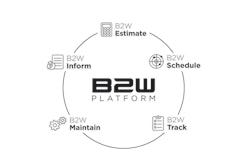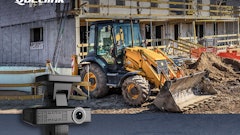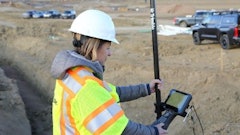So much time and money is wasted when crews are not well organized. I'm guessing it happens at your company. I've seen very few companies where it doesn't.
You know what I'm talking about:
- The crews leaving the yard 45 minutes after arriving for work.
- People mulling around a job site.
- The crews calling in needing equipment or material.
- The crews not knowing what to do when the weather turns or an area isn't ready for them.
- The crews not showing any sign of urgency.
Now, I'm not casting stones at your leadership style but I do have a tip that will eliminate much of the problem. It can be summed up in one word.
COMMUNICATION
The simple solution that wipes out much of the waste is the use of a daily huddle. Well, preferably two daily huddles. Huddles work with one-man crews and large crews. The approach is the same, as is the importance.
The name comes from, quite obviously, football. Everyone comes together to call the next play, goes out and kicks some butt, and then huddles up again.(Side note: Dad raised a bit of a football freak. He went to University of Oklahoma and brought me up on them - and talked me into going there.)
One of my favorite tricks to pull when I first come across a construction crew is to ask them whether they had been told what they were to get done that day and how many man-hours they had to complete their work. Invariably both answers are NO.
Now, how in the heck can you expect your crews to complete their work on time when you haven't told them how much time they have to complete the work? I don't even get to ask these crews about their awareness of special customer requirements. I do get earfuls of complaints about having to wait on materials, not having the right tools for the job, or having tools that don't work right.
Depending on the skill of your foreman, either they should lead the crew huddle or someone in charge of field operations should. As I said, I strongly recommend holding two huddles: one in the morning and one in the evening.
The morning huddle's purpose is to get them geared up for a successful day. The afternoon huddle's purpose is to review the day and gather the feedback you need to keep them productive tomorrow.
Neither huddle should last more than 10 minutes. If the work is simple and the crew is small, the huddles shouldn't take more than five minutes. Get together, say your peace, get them on their way.
The Morning Huddle
Usually held at the yard.Set Day's Goals
- Tell them what needs to be done by day end.
- Tell them how many hours the work should take.
- Tell them the quality of work expected by the customer.
- Tell them how to treat the customer should they cross paths.
Drive Safety
- Review required safety equipment & practices.
- Openly discuss problems.
Provide Feedback
- Congratulate them on good quality and productivity.
- Remind them this is their company too!
The Afternoon Huddle
Usually held at the site unless they are done with that project.Review Performance
- What got done?
- What didn't get done?
- Remind crew of upcoming milestone dates.
Discuss New Problems
- What went wrong?
- Any recommended solution?
- CO needed?
- RFI needed?
Identify Labor Needs
- Do we have the right people for tomorrow?
- Anyone not going to be here?
Identify Material Needs
- Are we short any materials for tomorrow?
- Do we have the material for your next work area?
Identify Equipment Needs
- Do you need any different tools or equipment?
- Are you finished with any tools or equipment?
- Everything working okay?
Summary
A little communication goes a long ways towards eliminating waste. Setting goals greatly improves productivity. This is the easiest-to-understand, simplest-to-put- into-affect system I will ever give you. There really is NO excuse for not huddling with your crews.
Ron Roberts, The Contractor's Business Coach, teaches contractors how to turn their business into a profit spewing machine. To receive Ron's FREE Contractor Best Practices Newsletter visit www.FilthyRichContractor.com.
*This article was initially published in 2008 and re-published with updates in 2024.




















